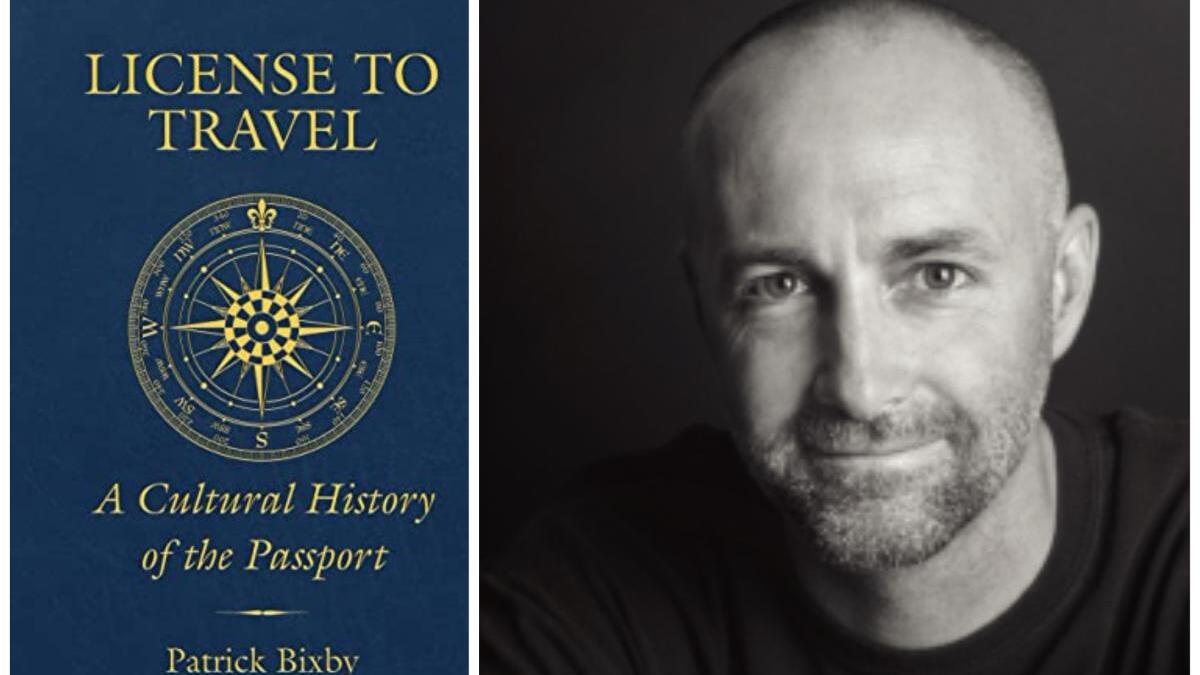ASU’s Institute for Humanities Research announces 2023 book award winner

Arizona State University’s Institute for Humanities Research (IHR) has announced “License to Travel: A Cultural History of the Passport” (University of California Press, 2022) by Patrick Bixby as the 2023 IHR Book Award winner. Bixby is a professor at ASU’s School of Humanities, Arts and Cultural Studies.
Established in 2008, the annual award celebrates outstanding writers whose contributions to the humanities change the conversation by fostering new directions for their discipline. The nonfiction humanities-based books are judged by the IHR committee. Every odd-numbered year, the IHR Book Award is presented to an ASU faculty member who has published a work in the last two years. On alternate years, the award goes to a national, non-ASU-authored book.
“We are thrilled to give this award to Professor Bixby,” said IHR Director Ron Broglio. “The committee looks for a book that is accessible to a wide audience, works across humanities disciplines, shows strong research and provides new ways of seeing a topic. ‘License to Travel’ is that book, and the IHR is proud to present the award to Professor Bixby for his gifted storytelling through the cross-cultural lens of the passport.”
Bixby’s scholarly interests span a variety of related fields, including mobility studies, modernist studies, Irish studies, and postcolonial theory and criticism. He teaches courses in these areas and in the history of the novel, the history of film, the history of literary criticism, contemporary critical theories, and methods of interdisciplinary research. In “License to Travel,” Bixby examines the passports of artists and intellectuals, ancient messengers and modern migrants to reveal how these seemingly humble documents implicate us in larger narratives about identity, mobility, citizenship and state authority.
This cultural history takes the reader on a captivating journey from pharaonic Egypt and Han Dynasty China to the passport controls and crowded refugee camps of today. Along the way, the book connects intimate stories of vulnerability and desire with vivid examples drawn from world cinema, literature, art, philosophy and politics, highlighting the control that travel documents have over our bodies as we move around the globe.
Ranging broadly through time and space, Bixby explores archives, works of literature, films and even internet myths in this engaging work that insists we contemplate how passports generate and foreclose possibilities. As Bixby writes, “Now, more than ever, we are our documents: They tell the world who we are, where we come from, and where we can go.” With unexpected discoveries at every turn, "License to Travel" exposes the passport as both an instrument of personal freedom and a tool of government surveillance powerful enough to define our very humanity.
The two shortlisted titles this year are "Sonic Overload” (Oxford University Press) by Peter J. Schmelz, professor, School of Music, Dance and Theatre, and "Unshaved: Resistance and Revolution in Women's Body Hair Politics” (University of Washington Press) by Breanne Fahs, professor, School of Humanities, Arts and Cultural Studies.
The annual IHR Book Award Ceremony will take place from 4 to 6 p.m. Thursday, Oct. 12, at Ross-Blakley Hall on the Tempe campus.
>>LEARN MORE: Read The Wall Street Journal’s review of “License to Travel,” listen to Bixby’s interviews on KJZZ and KQED, watch his Tedx Talk and read previous coverage on ASU News.
More Arts, humanities and education

An intergenerational approach to learning
Five students stood in front of the class and went through their presentation, complete with video and, afterward, a Q&A…

ASU research finds high dissatisfaction among Arizona's K–12 educators
New research at Arizona State University has found deep dissatisfaction among Arizona's K–12 educators, who cite overwhelming…

A humanities link from Harvard to ASU
Jeffrey Wilson didn’t specifically seek out Arizona State University professors when it came to filling out the advisory board…